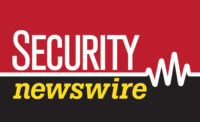A recent issue of Security Magazine featured an open letter to President-elect Barak Obama calling for establishment of a Homeland Security Undergraduate Resident Academy/University. What follows is an enlargement of that concept as authored by Dean C. Alexander and Jamie L. Johnson.
The November 2008 Mumbai terrorist attacks—coupled with sustained jihadist threats globally, domestic extremist threats in the United States, and natural disasters—confirm the need for the establishment of a federally-organized homeland security undergraduate resident academy/university (HSUA) that we proposed in this magazine in December 2008.
Government employers in the homeland security and intelligence realms would be able to find hundreds of candidates yearly that have performed well in academic, professional, practical, tactical, and language programs at HSUA. In their new positions, these intelligent, educated, well-trained, and vetted individuals—with multiple knowledge bases and skills sets—would aid in crafting effective and efficient solutions.
Presently, the absence of a single place for academic (undergraduate) and practical training in homeland security and intelligence subjects makes locating tier-one candidates highly complex, inefficient, and costly with less than ideal results. For instance, hundreds of thousands of online applications are pruned by government recruiters while also analyzing candidates previously marketed to at social networking sites (e.g., Facebook and MySpace), often attracting too many unsuccessful candidates. In addition, recruiters at disparate agencies need to interact with a multitude of inappropriate applicants from hundreds of universities rather than focusing principally on a sole homeland security/intelligence-focused magnet university/academy—HSUA.
Given the important nexus between intelligence and homeland security, the likely principal destinations for HSUA graduates would be homeland security centered agencies and the non-military components of the
• The Central Intelligence Agency (CIA)
• The Federal Bureau of Investigations (FBI)
• The Office of the Directorate of National Intelligence (ODNI)
• Department of Homeland Security (DHS)
There are a variety of analytical positions at the CIA (an independent national security intelligence agency) that would be attractive to academy graduates, including: analytical methodologists, counterintelligence threat analysts, counterterrorism analysts, economic analysts, intelligence collection analysts, leadership analysts, military analysts, open source officers, political analysts, targeting analysts, medical/health analysts, and technical analysts.
Furthermore, there are multiple roles in the CIA’s National Clandestine Service (NCS) unit that academy students would be qualified for following graduation, such as: core collector/operations officer, core collector/collection management officer, and NCS language officer. Other media-related positions include the open source officer (foreign media analyst).
The FBI’s national security mission is to understand threats and penetrate national and transnational networks: terrorist organizations, foreign intelligence services, proliferators of weapons of mass destruction, and criminal enterprises. The FBI’s National Security Branch (NSB) includes: the Counterterrorism Division,
HSUA would provide extraordinary candidates to the FBI’s NSB serving in counterterrorism, intelligence, and counterintelligence career paths. While some FBI Special Agent positions require several years of work experience and minimum age requirements, the FBI would soon bring in HSUA graduates (in some cases immediately) after some professional exposure.
With reference to the ODNI (the head of the U.S. intelligence community), HSUA graduates would aid the offices of: the Deputy Directors of National Intelligence for Collection, National Intelligence for Requirements, and National Intelligence for Analysis. These academy graduates would also be assist at ODNI centers: the
Also, HSUA graduates would apply their knowledge bases at the DHS (multi agency department with diverse homeland security/intelligence mandates), including: the Office of Intelligence and Analysis, Federal Air Marshal Service, Office of Intelligence and Operations Coordination at the U.S. Customs and Border Protection, and the Office of Intelligence at the U.S. Immigration and Customs Enforcement. Lastly, at the Federal Emergency Management Agency, matriculating students would work at the Directorates of Disaster Assistance, Disaster Operations, Logistics, Mitigation, National Continuity Programs, and National Preparedness.
The background that HSUA would provide prospective graduates ensures that they would immediately make important contributions at the CIA, FBI, ODNI, and DHS. Moreover, these individuals would reach their respective employers through a rapid and cost-effective recruitment process as hundreds candidates annually would be located in one place. By combining well-trained employees with an effective and efficient recruitment framework,
As renowned Chinese military tactician, Sun Tzu, noted, “To secure ourselves against defeat lies in our own hands, but the opportunity of defeating the enemy is provided by the enemy himself.” The creation of HSUA, and its prospective supply of 21st Century homeland security/intelligence “warriors,” would contribute to securing the
About the authors: Dean C. Alexander, J.D., LL.M., Director, Homeland Security Research Program, School of Law Enforcement and Justice Administration, Western Illinois University. Jamie L. Johnson, Ph.D., CHES, ATC/L, Associate Professor, Department of Health Sciences,





